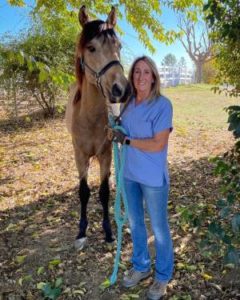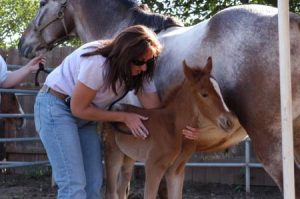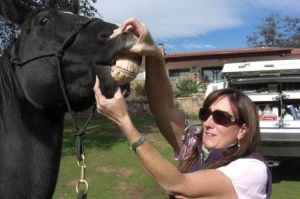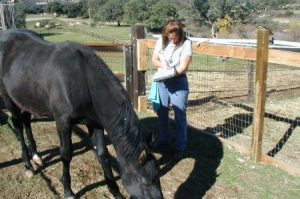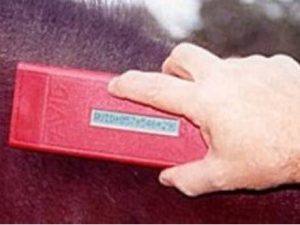
TRAINER LIABILITY
If you train riders in any discipline, at any level, a recent decision from an appellate court in California should give you pause.
In November 2006, while competing in a two-star eventing competition at Galway Downs near Temecula, California, 17-year-old Mia Eriksson was killed during the cross country phase. Her horse, Koryography, fell at a water jump and the rider came off over the animal’s head. Koryography then landed on Eriksson. She was rushed to a hospital but died two days later from injuries suffered in the fall. Her parents sued the United States Equestrian Federation, the United States Eventing Association, the organizers of the event, and Eriksson’s trainer/coach, Kristi Nunnink. The lawsuits against the USEF, the USEA, and the organizers eventually were dismissed, and a trial court dismissed the claim against Nunnink as well.
Eriksson’s parents appealed, and on Jan. 10 the California Court of Appeals reversed the lower court’s decision. This does not mean that the Erikssons won the case, or that Nunnink lost. It does mean that the lawsuit now can proceed to a trial on the merits of the parents’ claims that include wrongful death and the negligent infliction of emotional distress.
The dismissal by the trial court was based on Nunnink’s motion for summary judgment. This is a pre-trial procedure that allows a defendant to argue that there are no relevant facts in dispute between the parties and that the plaintiffs (in this case Eriksson’s parents) cannot win at trial as a matter of law. When a court grants summary judgment, the judge is agreeing that a trial is unnecessary because there are no disputed facts for a jury to decide and that there is no way that the party opposing the motion could win if a trial were held.
Nunnink raised two related arguments in her motion for summary judgment: that being seriously injured or killed are inherent risks associated with participation in riding cross-country and that Eriksson and her mother both signed a pre-accident waiver releasing Nunnink from any liability. The Court of Appeals acknowledged that cross-country riding is inherently dangerous and that the risk could be reasonably assumed by a participant. These inherent risks “highlight the importance of having a healthy and fit horse when competing in the activity,” the Court added.
After a comprehensive review of California law, the Court also said that the relationship between a coach and an athlete might reasonably include “pushing” or “challenging” the athlete to attempt a higher level of competition as a way to improve performance. The Galway Downs competition was Mia Eriksson’s first try at a two-star event. The Court also said, however, that a coach has a “duty of ordinary care not to increase the risk of injury to a student by encouraging or allowing the student to participate in the sport when he or she is physically unfit to participate or by allowing the student to use unsafe equipment or instruments.”
Koryography had fallen in his last two competitions, apparently suffering a concussion and other injuries a few weeks before the Galway Downs event. The Erikssons claimed that Nunnink encouraged their daughter to compete on a horse that was unfit for the task and that she misrepresented the horse’s condition to Mrs. Eriksson.
To win her summary judgment motion, Nunnink could have proved either that she had no control or responsibility regarding Mia Eriksson’s participation in the event, or that Koryography was fit to compete. She failed on both counts, the Court said.
Nunnink also relied on a written waiver of liability signed by Mia Eriksson and her mother in 2006. Among the provision of the release was a statement that the Erikssons would not sue Nunnink as a result of any claim arising out of Mia Eriksson’s “use of” Nunnink’s services. This is standard hold harmless language used in most liability waivers. The Court said that even if the release was enforceable regarding a claim of ordinary negligence, the agreement “does not preclude the Erikssons’ actions against Nunnink to the extent they are based upon aggravated conduct” by the trainer.
The Court of Appeals ultimately reversed the lower court’s grant of summary judgment because there were disputed issues of fact regarding “the reasonableness of her [Nunnink’s] conduct in allowing Mia and Kory to participate in the cross-country portion of the Galway event.”
A summary judgment motion does not directly address the merits of the claims made by Mia Eriksson’s parents. That determination will have to wait for a trial. The case does raise an important question, however: what responsibility, if any, does a trainer or coach have if a student rider is injured during a competition?

